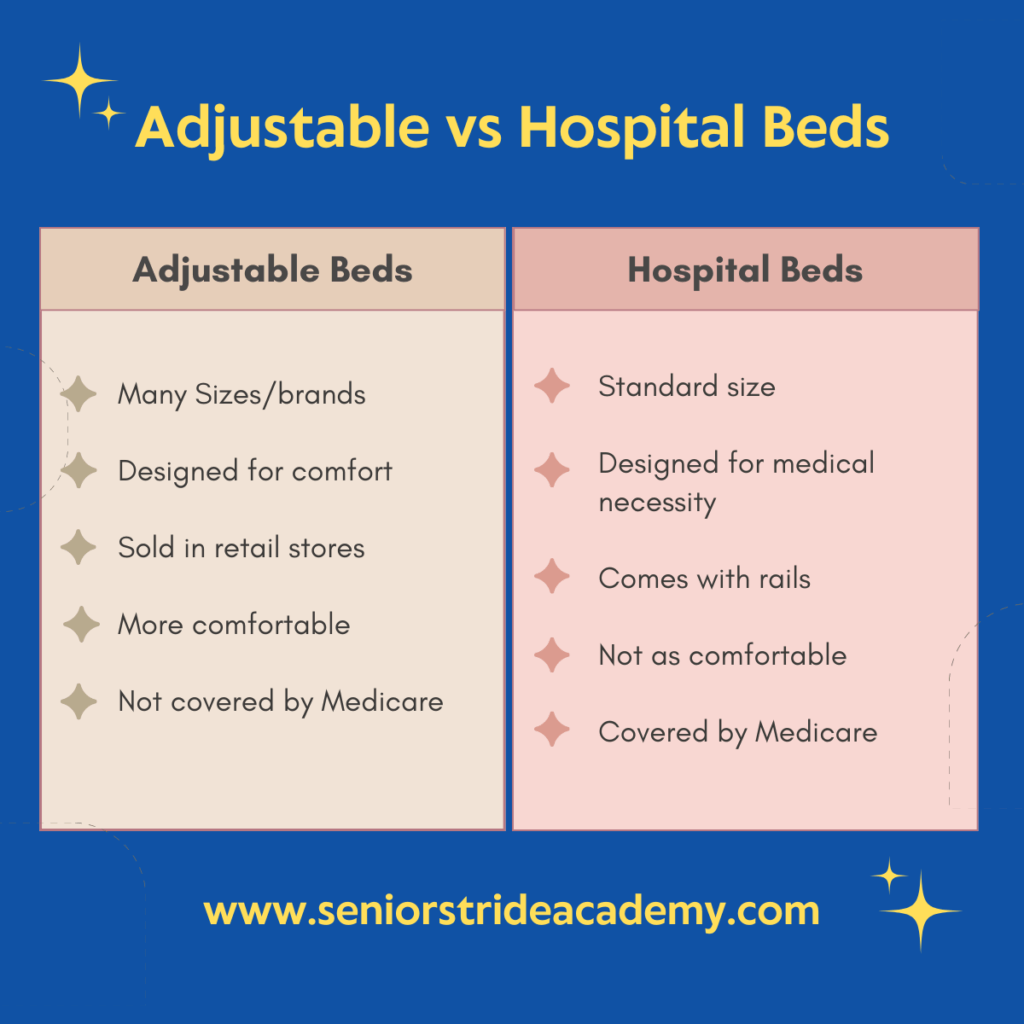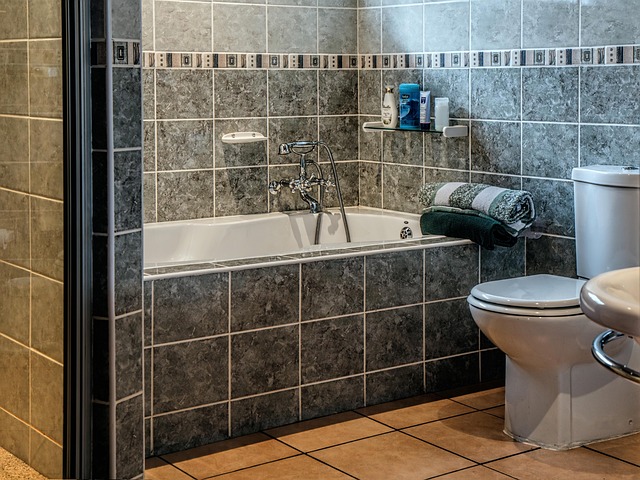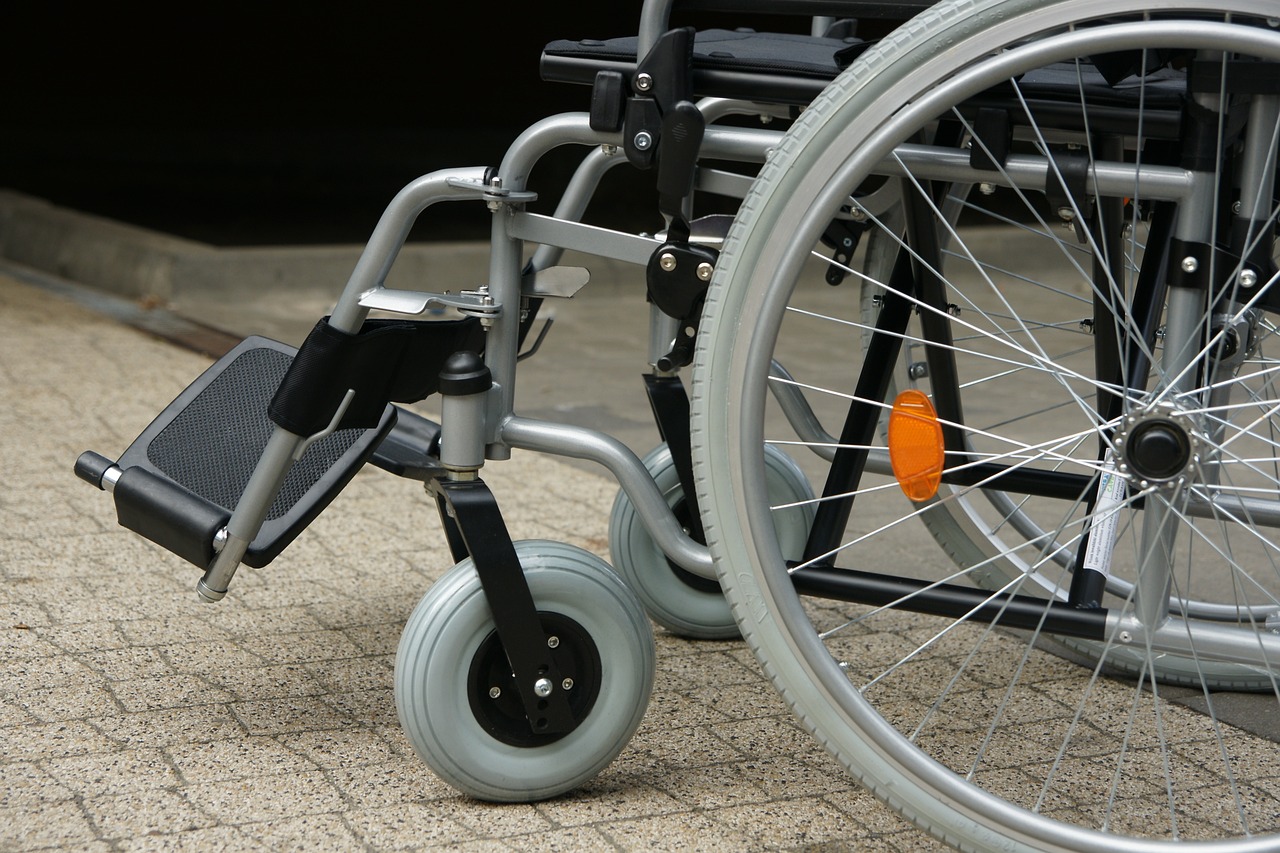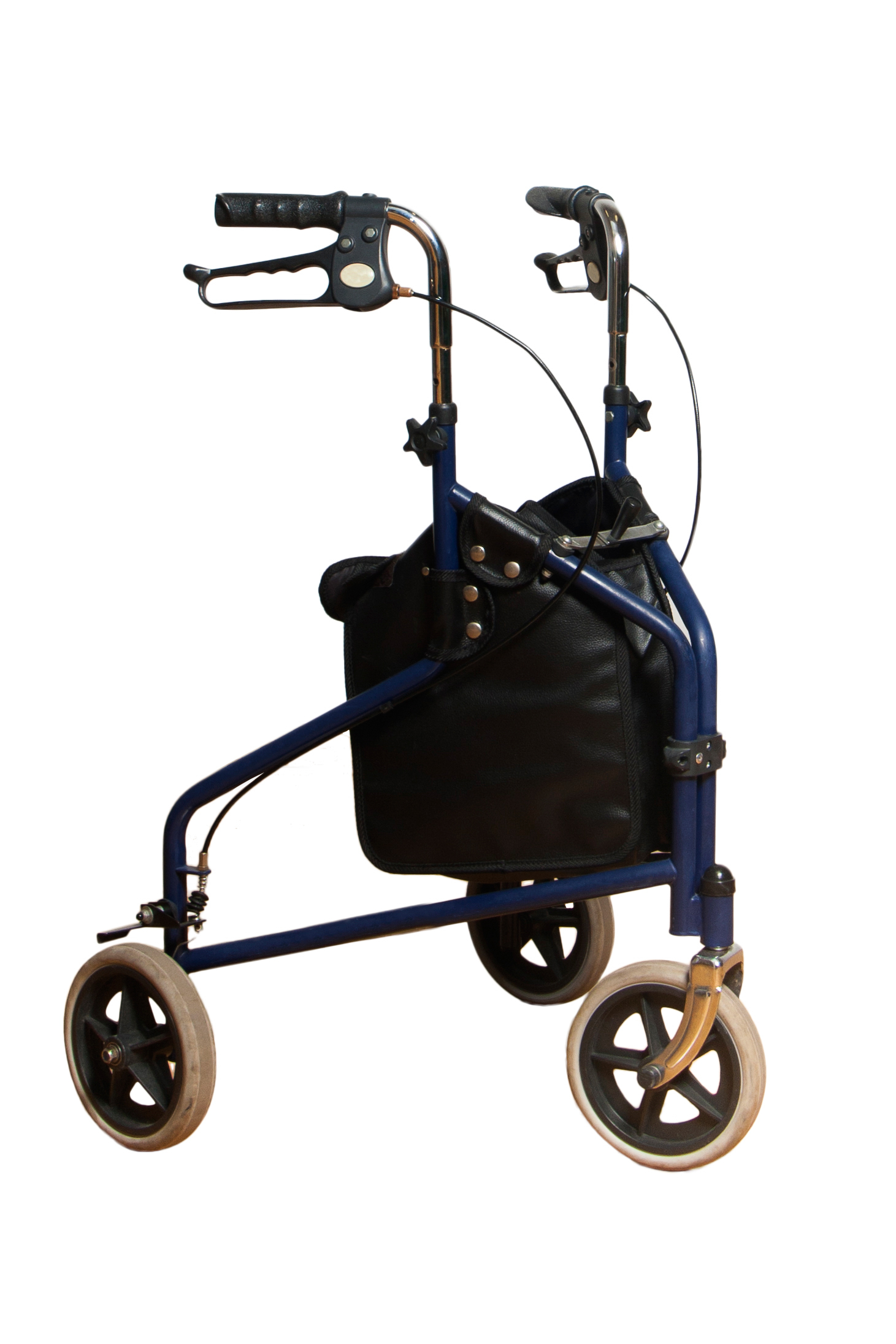Adjustable beds offer numerous benefits for seniors, such as improved comfort, better sleep, and relief from conditions like acid reflux, arthritis, or chronic pain.
They can also be life-savers for seniors who have a hard time breathing when lying down or for folks dealing with swelling in their legs.
There’s no doubt these beds are helpful, but paying for one can be hard on the budget.
So, the big question is whether or not Medicare will pay for an adjustable bed.
Well, the short answer is yes, but it depends on a few factors.
If you’re interested in the longer answer, keep reading.
In this guide, we’ll break down the coverage options under Medicare, what qualifies as a medical necessity, and how you might be able to get an adjustable bed covered through different parts of Medicare.
Does Original Medicare Cover Adjustable Beds?
Original Medicare (Part A and Part B) does not generally cover adjustable beds specifically.
That said, Medicare Part B may cover hospital beds, which have adjustable features similar to adjustable beds… but only if they are deemed medically necessary by a physician.
So, what is Considered “Medically Necessary”?
To qualify for coverage of an adjustable hospital bed under Medicare, the bed must be prescribed by your doctor, and they must certify that:
- You have a medical condition that requires positioning your body in ways not possible with a regular bed.
- The bed is necessary for pain relief or to improve bodily function (such as breathing or digestion).
If these conditions are met, Medicare Part B may cover 80% of the cost of the hospital bed as part of its Durable Medical Equipment (DME) benefits.
You will be responsible for the remaining 20% after meeting your annual deductible.
Limitations on Hospital Beds
Medicare will cover only basic hospital beds, not luxury or specialty adjustable beds typically sold in retail stores.
The bed must also be provided by a Medicare-approved supplier.
You won’t be able to pick out just any adjustable bed – it must meet Medicare’s definition of a hospital bed for coverage to apply.
And I have to say, basic hospital beds aren’t particularly comfortable.
Their mattresses are rather flat and they aren’t wide enough to fit all folks comfortably.
But they do come with power adjustable heads and feet, allowing seniors to position themselves as needed.

Adjustable vs Hospital Beds
While both adjustable beds and hospital beds offer customizable positioning, they serve different purposes.
Adjustable Beds
Primarily designed for comfort and lifestyle, adjustable beds allow users to elevate their head, feet, or both, promoting better sleep posture, reducing snoring, and relieving discomfort.
They come in a variety of designs and are often sold through retail stores.
Adjustable beds come in all kinds of sizes and are offered by various different brands.
These beds are typically not covered by Medicare.
Hospital Beds
Hospital beds, on the other hand, are covered by Medicare as DME.
Hospital beds are designed for medical use, so they come with safety features, like side rails, and are adjustable to assist with medical conditions like respiratory issues or limited mobility.
These beds generally aren’t as comfortable as retail adjustable beds, but they are covered by Medicare.
In general, hospital beds focus on meeting medical needs, while adjustable beds are more suited for comfort and sleep preferences.
Does Medicare Advantage (Part C) Cover Adjustable Beds?
If you have a Medicare Advantage (Part C) plan, your coverage options may be broader.
Medicare Advantage plans are offered by private insurers and often include extra benefits not covered by Original Medicare.
Some plans may offer adjustable beds as part of their coverage for additional medical equipment, especially if it helps manage chronic conditions.
It’s important to check with your specific Medicare Advantage plan provider to see if an adjustable bed is covered, what types of beds are eligible, and any costs associated with them.
Does Medicaid Cover Adjustable Beds?
If you qualify for Medicaid, coverage for adjustable beds may be more comprehensive than Medicare.
Medicaid benefits vary by state, but many states offer coverage for adjustable beds under their home and community-based services or long-term care programs.
Check with your state’s Medicaid office for details on what’s covered and how to qualify.

How to Get a Hospital Bed Through Medicare
Ok, so now we understand the difference between an adjustable bed and a hospital bed and we know that Medicare only covers hospital beds.
But now what?
Well, if you think a hospital bed will help, here’s what you’ll have to do:
- Visit Your Doctor: Schedule an appointment with your doctor to discuss your need for a hospital bed. They must confirm that the bed is medically necessary.
- Get a Prescription: Your doctor will provide a written order or prescription specifying the medical reason you need the bed.
- Find a Medicare-Approved Supplier: Locate a supplier that accepts Medicare to ensure coverage (a lot of times, your doctor will send the prescription for the bed directly to the supplier for you).
- Submit the Claim: The supplier will submit the claim to Medicare on your behalf.
- Pay Your Share: If approved, Medicare covers 80% of the cost, leaving you responsible for the remaining 20% after meeting your deductible.
- Delivery and Setup: Once approved, the hospital bed will be delivered and set up by the supplier.
As a physical therapist, I sometimes find myself acting as the middle man to help relay messages between the DME supplier and the doctor’s office.
Therapy notes can sometimes help prove medical necessity as well.
Renting vs. Purchasing a Hospital Bed
When obtaining a hospital bed through Medicare, you’ll need to decide whether to rent or purchase. Here’s a comparison:
- Renting: Medicare often covers the rental of hospital beds, especially for short-term use. Renting may be ideal if you only need the bed temporarily or if your medical condition might improve.
- Purchasing: If the bed is needed long-term, purchasing could be a better option. Medicare may still cover the cost, but you’ll need to meet certain criteria, such as long-term medical necessity.
Alternatives for Getting an Adjustable Bed Covered
If Medicare does not cover the type of adjustable bed you need, there are still other options to consider:
1. Long-Term Care Insurance
If you have long-term care insurance, it may cover the cost of an adjustable bed, especially if it’s needed to help manage a chronic condition or aid with mobility.
2. Veterans Benefits
If you’re a veteran, you may be eligible for an adjustable bed through Veterans Affairs (VA) benefits.
The VA provides medical equipment, including beds, for veterans with certain medical conditions.
3. Out-of-Pocket Payment
If insurance doesn’t cover the cost of an adjustable bed, many retailers offer financing or payment plans to make purchasing one more affordable.
Some medical equipment suppliers may also offer refurbished hospital beds at a reduced cost.
Final Thoughts
Unfortunately, Medicare won’t cover any adjustable bed you find on the market, but they will cover the majority of the cost for a traditional hospital bed.
But that’s only if your doctor writes an order explaining why you have medical necessity for one.
For broader coverage options, Medicare Advantage plans or Medicaid may provide additional benefits that could include adjustable beds.
But odds are, if you want an adjustable bed that isn’t a hospital bed, you’ll likely have to find a way to pay for it on your own.
Either way, always consult with your healthcare provider to determine the best course of action for your needs.
And when in doubt, review your insurance plan to explore coverage possibilities.



